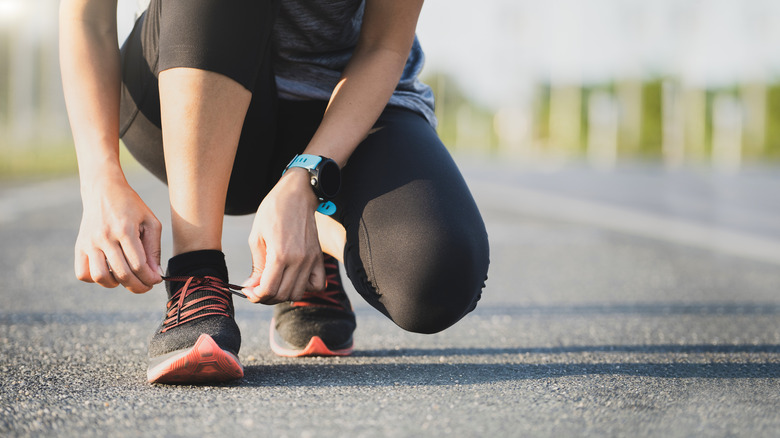How To Choose The Best Running Shoe
If you're a runner, you know that having the right pair of shoes is essential to avoiding injuries and enjoying your runs. But with so many different types and styles of running shoes available, how do you choose the best ones for you? The first step is to think about how much you will be running (via US News). If you're just starting out, or if you only run occasionally, you probably won't need the most expensive or high-tech shoes. However, if you're an experienced runner who runs regularly, you'll want to invest in a good pair of shoes that will provide support and cushioning.
Next, consider your running style. Are you a heel-striker or a forefoot-striker? Do you pronate (roll your foot inward) or supinate (roll your foot outward)? Different shoes are designed for different types of runners, so it's important to choose a pair that will work with your specific running style. This can help you prevent injury while running. You'll also want to consider other issues you may have with your feet, including bunions or toe pain. If this is the case, a shoe with a wide toe box can help you avoid discomfort. Finally, don't forget to think about the fit. Running shoes should be snug but not too tight, and they should have enough room to allow your toes to move comfortably.
Health benefits of running
Whether you jog every morning or finish your gym workouts with sprints, there are plenty of reasons to incorporate some form of running into your workout routine. Running is an excellent form of cardio that can help you torch calories, improve your heart health, and boost your mood. If you're looking to shed some pounds, running is a great way to do it. Not only does running burn calories (one mile burns around 100), but it also helps build lean muscle mass, which in turn helps your body burn more calories at rest (via Women's Health).
Running is great for your heart health as well. In fact, running regularly can reduce your risk of heart disease by about 45%. That's because running strengthens your heart muscle and helps keep your blood vessels healthy. What's more, running can help improve your cholesterol levels and blood pressure. Running is great for your bones too. This exercise can help build strong bones and slow the bone loss that comes with age. That's because the impact of running helps stimulate the production of new bone cells. Plus, the added weight-bearing exercise can help reduce your risk of osteoporosis. If you've been thinking of giving running a try, go for it.


